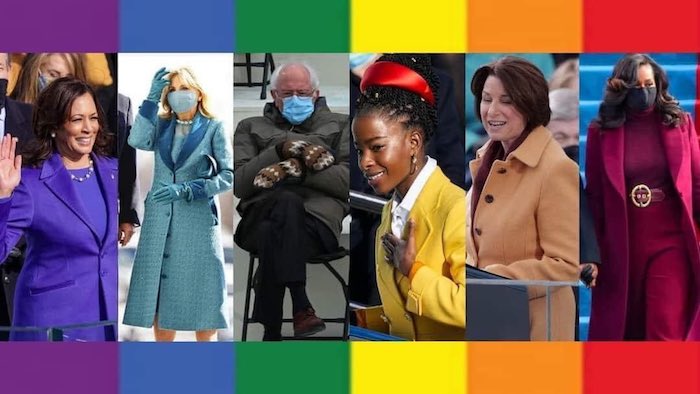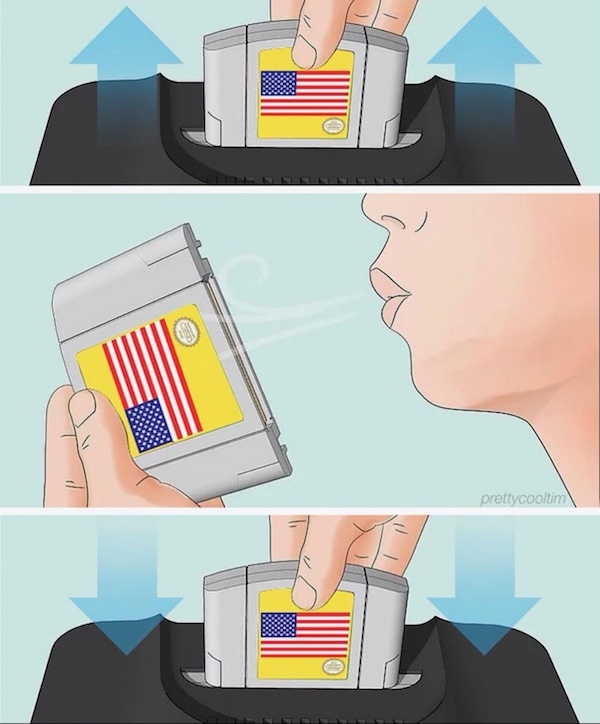Hope for the boss battle
By Mark Hurst • January 21, 2021
I heard the noise yesterday at the very moment Joe Biden lowered his right hand, having completed the inauguration oath. Cheers from the sidewalk, and pan-banging sounds from across the street. In a small re-enactment of the spontaneous street celebration here in Manhattan when the election was called back in November, I heard my neighbors cheering, finally, the transfer of presidential power. It reminded me of the daily 7 p.m. noise-making we all did for several months during lockdown in honor of healthcare workers. It was the sound of gratitude mixed with hope. And so was the pot-banging yesterday.

I do feel hopeful today, and I wish the new administration success. The inauguration showed the best American aspirations, just as exactly two weeks earlier, on those same Capitol steps, we witnessed the very worst. Yesterday's inauguration was a relief and, as some pointed out, a restoration - promising a return to rational governance and blessedly boring press conferences.
Online, it already feels different. Zack Bornstein compared social media now to the cleaning-up phase of a video game: "Twitter now just feeling like doing side quests after beating the main boss." It's an apt analogy, as so much online (and elsewhere) increasingly resembles video games. Typically, the climactic fight of a video game is the "boss battle."
But while I appreciate that analogy, it's not quite accurate - because the former president, while he was soundly beaten, was not the main boss.
We have to first understand that the former president - as much harm as he created - was ultimately an output of a system, a symptom of a disease, rather than the source itself. The prime mover here, the source of the problem, is located - as it always is - at the greatest concentration of money and power. Today, that's the small set of the world's richest companies, collectively known as Big Tech.
As I wrote two weeks ago, in The bright side of insurrection, Facebook was not only complicit in the January 6 insurrection - it had, for years, nurtured a relationship with Trump (as well as Duterte, Bolsonaro, Modi, and other strongmen). And as I wrote last week, Facebook leadership has no good answer for that complicity. That's because division, strife, and murderous insurrection aren't a byproduct of Facebook, they're the point: the more we're all divided into mutually hateful groups, the more we're dependent on Facebook as the gatekeeper, the authority, and the benevolent peacemaker in society. I'd say the same for Twitter, Google, and YouTube.
As Seth Macfarlane wrote on election day: "Regardless of who wins tonight, the real winner is Silicon Valley. Americans have more in common than we think we do. However, the social media companies have profited enormously by putting what divisions we do have on steroids."
President Biden and Vice President Harris, then, have a clear challenge: they must take on the main boss. And that means taking on the Big Tech giants.
I've already gotten in trouble for suggesting this. Back in August, I posted Kamala Harris and the ascent of Silicon Valley - a column, as I wrote later, that resulted in a flurry of angry reader emails and unsubscriptions from my newsletter. But my point stands: a lot, a lot, of Silicon Valley money went into the Biden-Harris campaign. A number of Silicon Valley alumni are on the Biden-Harris team, including a spectacularly bad candidate for antitrust. What's more, DC is crawling with Big Tech lobbyists. All of that, collectively, is the main boss that needs to be fought.
I'm still hopeful, and I'm still rooting for Biden and Harris, and that means I still want them to take on the main boss. Anyone who truly wants Biden and Harris to succeed should hope that they take on, and take down, Big Tech.
That's the real boss battle.

Other links
• My Techtonic show this week featured Sarah Brayne, author of "Predict and Surveil: Data, Discretion, and the Future of Policing." We talked about surveillance, Palantir, and why you are most likely already in a police database. See playlist, listen to the entire show (you can jump to the interview), or download the podcast.
• My newest Good Reports topic is The best messaging apps. Whatever you do, don't use WhatsApp or Facebook Messenger. Look through these recommendations to find a better alternative.
• Long read: The internet didn't kill counterculture - you just won't find it on Instagram - about the decline of counterculture online, as the Internet becomes a bland corporate walled garden.
• Medium read: 'We Tried to Warn You' (Timothy McLaughlin in The Atlantic, Jan. 12, 2021) - a review of Facebook's enablement of genocide in Myanmar, insurrection in America, and more. See also this LA Times op-ed with much the same message.
• Short read: A refreshingly honest restaurant menu, from Montreal's Aunt Dai.
• Fun mini-game: 2020, the browser game. (Don't worry, there's no boss battle.)
Until next time,
- Mark Hurst
Read my non-toxic tech reviews at Good Reports
Listen to my podcast/radio show: techtonic.fm
Subscribe to my email newsletter
Sign up for my to-do list with privacy built in, Good Todo
Email: mark@creativegood.com
Twitter: @markhurst
- - -